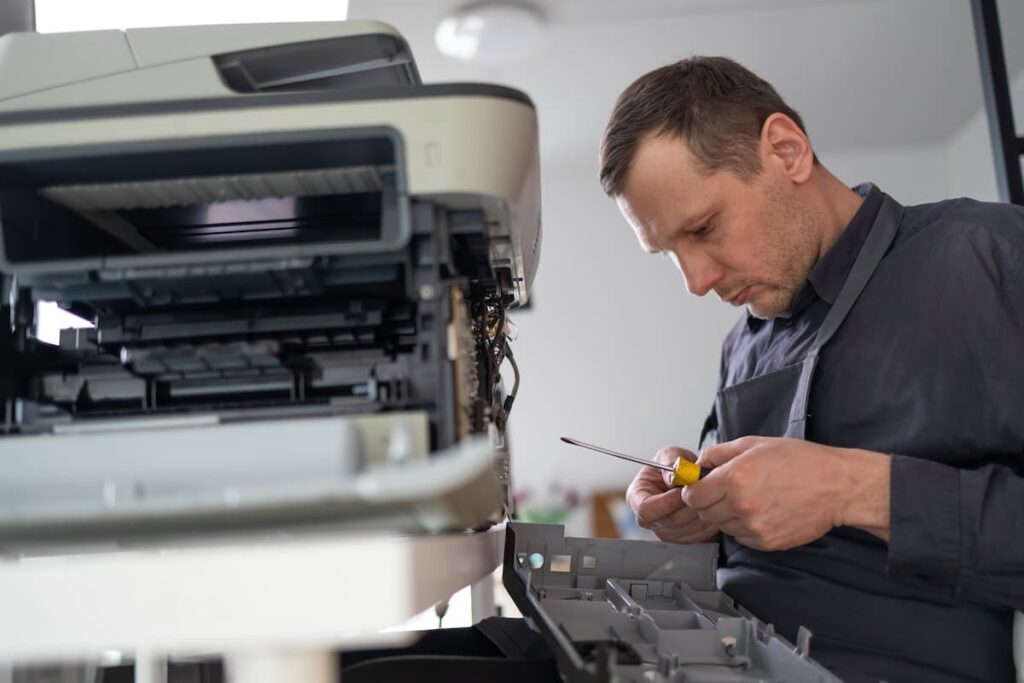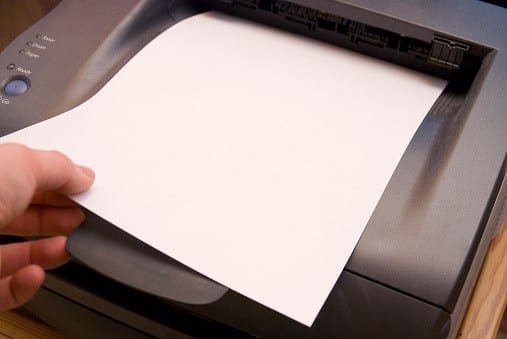The Surprising Connection Between Empty Waste Toner Box and Your Office Efficiency!
Introduction
In today’s fast-paced office environments, efficiency is key. One aspect that often goes unnoticed is the connection between empty waste toner box and office efficiency. Waste toner boxes are containers used in printers to collect excess toner that doesn’t make it onto the page. When these boxes become full, they can affect the performance of the printer, leading to delays and disruptions in the workflow.
The importance of recycling these waste toner boxes cannot be overstated. By recycling, we not only turn what would be waste into reusable materials but also conserve natural resources and energy. The act of recycling is more than just a recommendation; it’s a responsibility towards our environment. By recycling waste toner boxes, offices can reduce their carbon footprint, conserve resources, and enhance efficiency.
Moreover, the practice of recycling extends beyond just toner boxes. It includes other office materials like paper, plastic bags, and aluminum cans. By adopting a comprehensive recycling strategy, offices can create a more sustainable and efficient working environment.
Understanding Empty Waste Toner Box
Waste toner boxes are containers found in laser printers. They collect the excess toner that doesn’t get transferred onto the paper during the printing process. These boxes are essential for maintaining the cleanliness and functionality of the printer.
- What are waste toner boxes?: Waste toner boxes are containers or cartridges designed to hold the residual toner that doesn’t adhere to the page during printing. They are a crucial part of the printer that helps in keeping the printing process smooth and clean.
- Why do they accumulate in offices?: Offices often require substantial printing, leading to the accumulation of waste toner in these boxes. If not replaced or emptied carefully, they can become a hindrance. The process to replace the waste toner box might require careful handling and sometimes even a video guide. A full waste toner box can cause printing errors and slow down office tasks, affecting overall efficiency.
The Environmental Impact of Not Recycling
Not recycling waste materials, including waste toner boxes, has a significant impact on energy consumption and natural resources. The failure to recycle leads to more waste in landfills and a higher demand for raw materials.
- Energy Consumption: Manufacturing products from raw materials requires more energy compared to recycling. This energy consumption is significant, especially when considering the global scale of production. For example, recycling one ton of office paper can save the energy equivalent of 322 gallons of gasoline. This saving translates into reduced greenhouse gas emissions and a decrease in the reliance on fossil fuels. It’s a step towards a more sustainable and energy-efficient future, where resources are used judiciously.Natural Resources: Recycling conserves vital natural resources like trees, water, and minerals. By recycling aluminum cans, more than 152 million Btu can be conserved, equivalent to 1,024 gallons of gasoline or 21 barrels of oil. This conservation helps in preserving the ecological balance and reducing the strain on our planet’s finite resources. It also means less deforestation and mining, leading to a healthier ecosystem and a reduction in pollution.
Examples of Savings: Recycling just 10 plastic bottles saves enough energy to power a laptop for over 25 hours. These examples illustrate the tangible benefits of recycling not only for the environment but also for the economy. The energy saved can be redirected to other essential services and industries, contributing to economic growth. Moreover, recycling creates jobs and promotes technological innovation in waste management. More information on land and waste management can be found at Land, Waste, and Cleanup. By understanding and implementing recycling practices, individuals and businesses can play a crucial role in building a sustainable future.
How Recycling Boosts Office Efficiency
Recycling, especially of waste toner boxes, plays a vital role in boosting office efficiency. The process of recycling and its benefits are multifaceted:
- The Process of Recycling: Recycling involves collecting, sorting, and processing waste materials to turn them into new products. In the context of waste toner boxes, this means carefully removing the container, cleaning it, and preparing it for reuse or recycling.
- Energy Savings: By recycling, offices can reduce energy consumption. This energy saving correlates with office tasks, as less energy used means lower utility bills and a more sustainable work environment.
- The Role of the individual Waste Reduction Model (iWARM): iWARM is a tool developed by the EPA to estimate how much energy can be saved by recycling specific products. By using iWARM, offices can understand how recycling waste toner boxes, plastic bags, and other materials can contribute to energy savings.
- Recommendations for Offices: Offices should replace waste toner boxes regularly and recycle them along with other materials like plastic bags. This practice not only keeps the printing process smooth but also contributes to a cleaner and more efficient office environment.
The connection between empty waste toner boxes and office efficiency is profound. By understanding this connection and implementing recycling practices, offices can create a more sustainable, efficient, and responsible work environment. The act of recycling goes beyond just being careful with waste; it’s a commitment to our planet and future generations.
Steps to Improve Office Recycling Habits
In the modern office environment, recycling is not just a trend but a necessity. The process of recycling, especially related to waste toner boxes, requires careful planning and execution. Here’s how you can improve office recycling habits:
Importance of Source Reduction and Material Reuse
Reducing waste at its source is the first step towards a sustainable office. This involves minimizing the use of disposable items and encouraging the reuse of materials. For example, instead of using disposable cups, encourage employees to use reusable mugs. This not only reduces waste but also saves resources.
Tips for Reducing and Reusing in the Office Setting
Implementing a step-by-step guide to reduce and reuse can make a significant difference. This includes simple steps like using both sides of the paper for printing, reusing envelopes, and using refillable pens. For waste toner boxes, you can follow a YouTube guide to carefully empty the waste toner into a bag for recycling. Make sure to wear gloves to avoid spillage and dust.
Proper Disposal Methods for Recyclables
Proper disposal is crucial to ensure that recyclables don’t end up in the trash. This involves separating recyclables like paper, plastic, and waste toner cartridges. For Konica Minolta or other laser printers, follow the instruction manual to remove and dispose of the waste toner container. You may also reach out to customer service for assistance. Always seal the waste toner into the bag and place it in a separate recycling bin. If an error message displays on the machine, follow the maintenance method provided in the manual or consult with a technician.
By following these steps, you’ll create a green office environment that not only adheres to proper recycling practices but also contributes to overall efficiency and sustainability.
What People Also Ask
Why is it essential to only put recyclable items in the recycling bin?
It’s vital to only put recyclable items in the recycling bin because non-recyclable materials can contaminate the entire recycling load. If you’re unsure, read the recycling guidelines or consult with your local recycling service. Incorrect disposal doesn’t just affect the recycling process; it can lead to more waste and increased costs for recycling facilities.
Why are some recyclable items not accepted at recycling facilities?
Some recyclable items are not accepted at recycling facilities because they require special handling or separate processing. For example, certain plastics or waste toner boxes from specific printer models might need particular methods of recycling. Always check with your local recycling facility or follow the manufacturer’s kommentare (comments) and instructions to ensure proper disposal.
Importance of composting and its benefits?
Composting is a method of turning organic waste into nutrient-rich soil. It’s essential because it reduces the need for chemical fertilizers, encourages the growth of beneficial bacteria, and reduces landfill waste. Composting is a quick and natural process that can be done at home or in the office, turning food scraps and yard waste into valuable compost.
Differences between paper and plastic shopping bags?
Paper and plastic shopping bags have different environmental impacts. While paper bags are biodegradable and can be recycled, they require more energy to produce. Plastic bags are lightweight and take less energy to manufacture but can take hundreds of years to decompose. Both have their pros and cons, and the choice often depends on reuse and recycling practices.
How to recycle electronics, bottle caps, and books?
Recycling electronics, bottle caps, and books requires special care. Electronics can be taken to designated recycling centers or retailers that offer recycling programs. Bottle caps often need to be removed and placed in separate recycling bins. Books can be donated or recycled at local recycling facilities. Always follow local guidelines and instructions for proper recycling.
Conclusion
The journey towards a sustainable office environment begins with understanding and implementing proper recycling practices. From knowing how to empty your waste toner box to following a step-by-step guide for recycling, every action counts.
Encouraging offices to adopt better recycling habits is not just a service to the environment; it’s a commitment to efficiency and responsibility. Whether it’s replacing a waste toner cartridge or recycling a plastic bag, each step contributes to a greener future.
Thank you for taking the time to explore these practices. By embracing these methods, you’re not only contributing to a cleaner world but also fostering a culture of sustainability within your office. The long-term benefits of a sustainable office environment are profound, and the impact reaches far beyond the walls of your workplace. Embrace recycling today, and pave the way for a better tomorrow.












